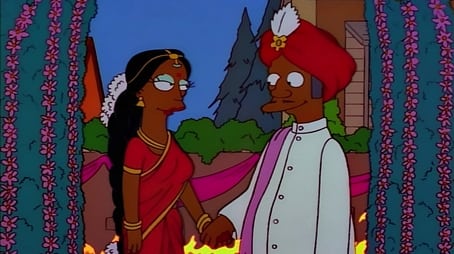
Sorry, we have not watched this yet.

Trying to escape his arranged marriage, Apu asks Marge to pose as his wife during his mother’s visit. When the ruse fails, Homer makes a last-ditch attempt to intervene, but Apu is smitten with his new bride Manjula.
Sorry, we have not watched this yet.